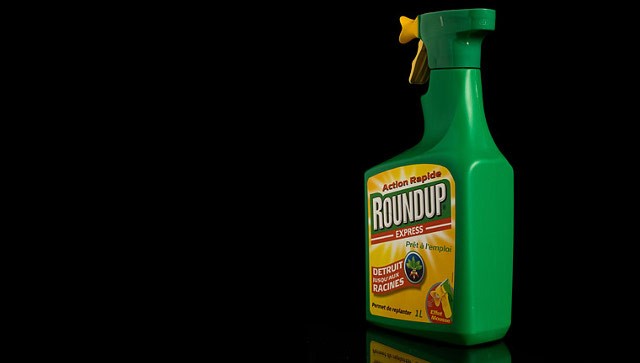Countries across the European Union have now joined the Great Glyphosate Rebellion that was started late last week by France, Sweden and the Netherlands.

According to anonymous Sustainable Pulse sources in Brussels, Bulgaria, Denmark, Austria, Belgium and Italy, among others, are set to also vote against the re-approval of the World’s most used herbicide in the EU and Germany are set to abstain.
Reuters reported late Monday that the vote planned for Tuesday on the re-approval of glyphosate until 2031 will now most likely be postponed, leaving the possibility of a glyphosate herbicides legal limbo, as the current approval of the chemical is set to end in June 2016.
Update: The vote was postponed until April or May 2016.
In an amazing week in Europe GM Watch also reported that Europe’s health and food safety commissioner Vytenis Andriukaitis has indicated that his directorate, DG SANTE, is exploring the possibility of full transparency for industry studies on pesticides.
This move has shaken the pesticide industry to the core as currently the industry studies submitted to support regulatory authorisations of pesticides are kept secret under commercial confidentiality agreements with regulators. Andriukaitis has said that this needs to change.
Public pressure against glyphosate in countries across Europe has been intense, with nearly 1.5 million people petitioning Andriukaitis, for a ban on the substance.
After a Dutch parliament vote opposing the renewal of glyphosate’s permit, the Netherlands called on Saturday for a postponement of the EU-wide decision. “If there is no possibility to postpone the vote, then we will vote against the proposal,” said Marcel van Beusekom, a spokesman for the Netherlands agriculture ministry.
The move by Sweden and the Netherlands followed the announcement on Friday by French Minister of Ecology Ségolène Royal that France will vote against the EU re-licensing of glyphosate.
Royal also added that France was not backing the European Food Safety Authority (EFSA) on their recent safety assessment of glyphosate and was instead basing their decision on the report of the World Health Organization’s International Agency for Research on Cancer (IARC) in 2015, which declared glyphosate to be a probable human carcinogen.
The Swedish environment minister, Åsa Romson, said: “We won’t take risks with glyphosate and we don’t think that the analysis done so far is good enough. We will propose that no decision is taken until further analysis has been done and the EFSA scientists have been more transparent about their considerations.”
Romson added: “We are raising concerns because our citizens are raising concerns. They want to feel safe and secure with food and production in our society.”
This move by France and their EU partners will hit the biotech giant Monsanto and other large pesticide companies which rely on glyphosate-based herbicides for a large percentage of their global profits. Glyphosate is now the most widely and heavily applied weed-killer in the history of chemical agriculture globally.



















“In an amazing week in Europe GM Watch also reported that Europe’s health and food safety commissioner Vytenis Andriukaitis has indicated that his directorate, DG SANTE, is exploring the possibility of full transparency for industry studies on pesticides.”
If this statement is accurate, we must further inquire what less than “full transparency” has been and for how long.
At last, the Commissioner is listening — it has been an ongoing scandal that the safety assessment of glyphosate has been based, in Europe, on industry studies that are unpublished and which are not available for scrutiny in their entirety by the public. That’s why EFSA and the EC have been so heavily criticised by NGOs during the reassessment process. The WHO assessment of glyphosate as a “probable carcinogen” is based, in contrast, on fully published and peer-reviewed studies. Secrecy and censorship have no place in scientific assessments, which are ultimately all about trust….
The US should learn from this. I’m amazed at the fatalism in the populace concerning pesticides and fluoridation.
This is awesome! Americans need to STOP THE DARK ACT NOW before Monsanto takes over our food supply!